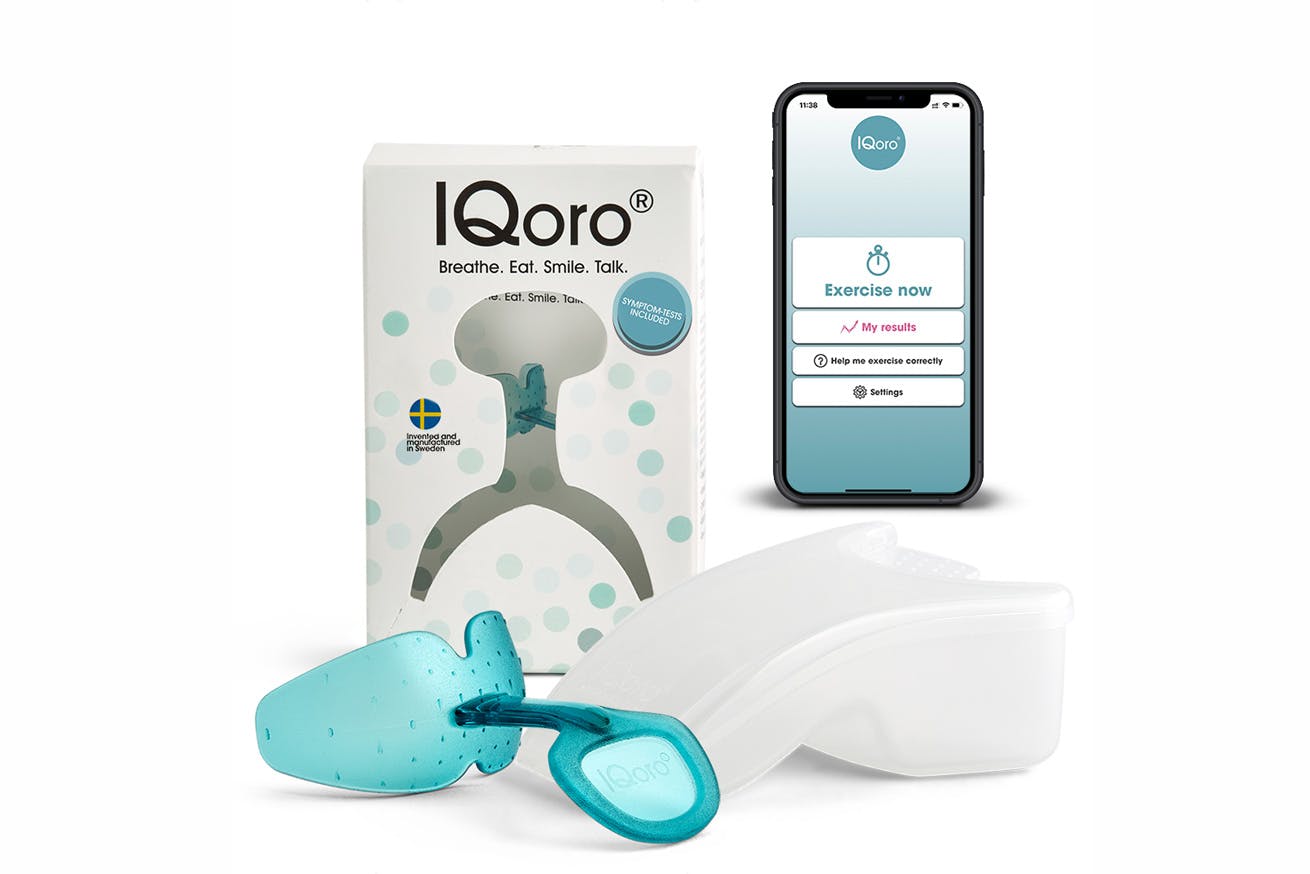What is IQoro®?
IQoro® is a unique device designed to improve and strengthen neuro-muscular activity in the throat and diaphragm with the aim of improving swallowing and helping reflux symptoms.

The IQoro device is simple to use and is usually used at home. Training consists of placing it in the mouth in front of the teeth and pulling forward against the sealed lips. This is repeated three times per day. Positive effects of this training of the nerves and muscles takes typically 2-4 months with longer and shorter periods also being reported.
How can it help reflux?
The published scientific studies describing the impact of IQoro on reflux have been in patients with hiatus hernias, one of the main causes of reflux. The Lower Oesophageal Sphincter (LOS) which is responsible for stopping reflux of acid and other contents of the stomach into the oesophagus has several components. One of the most important are the muscular fibres of the hiatus of the diaphragm. The oesophagus passes through the hiatus on its way to the stomach and normally the hiatus’ muscles fit snugly around the oesophageal wall. The normal configuration of these muscles is similar to a sling and so they can compress the oesophagus, similar to a “pinch cock” valve. As a hiatus hernia develops, the size of the hiatus enlarges and the normal attachments between its muscles and the oesophagus break down, allowing the stomach in time to intermittently move from its usual position below the diaphragm up and down between the chest and the abdomen. Because the hiatus has enlarged it becomes unable to compress the oesophageal wall and so the LES becomes less effective. The result is reflux.
IQoro is designed to strengthen and condition the muscles of the hiatus and so improve the effectiveness of this component of the LES.
Does it work?
The majority of the published evidence has reported studies of the effect of IQoro on other parts of the swallowing chain. There are also four published scientific papers which have looked specifically at the response of reflux symptoms and the use of antacid medications in patients with hiatus hernias. These do suggest that some patients will benefit and find that their symptoms improve. Some suggest improved oesophageal motility. All studies measured patients self-reporting of symptoms before and after IQoro training, but they were not randomised to include other treatments and there was no identification of which patients are likely to benefit most and which will not. None has used objective reflux tests to measure reflux or its relationship with symptoms.
Anecdotal evidence from 7,000 respondents to customer surveys suggest that perhaps 70 - 80% achieve a positive outcome.
RefluxUK’s position
We think that IQoro has a role in treating patients with reflux symptoms. We feel suitable patients are probably likely to have a small hiatus hernia, although this is not measured in the published studies.
Positive results are evidenced with both traditional acid-based symptoms and LPR type symptoms. The device does require commitment to a 3-times per day regime for a period of months.
After seeing an improvement of symptoms, a reduced, but ongoing, level of maintenance in training is likely to be necessary as the natural history of hiatus hernias is that they tend to enlarge over time.
Which reflux patients are likely to benefit from iQoro?
The sorts of patients that we suggest consider IQoro are those who have mild-to-moderate typical acid reflux symptoms, perhaps do not want to take PPIs even if they work and are happy to spend several months training with the device and commit to its long term use. They’ll probably not be keen on surgery or will want to use it as a temporary solution before committing to surgery. Ideally, they should all undergo formal reflux tests before treatment to confirm reflux is the cause of symptoms and to rule out other problems.
Pros
- Simple to use
- Widely adopted – 80,000 plus users
- Relatively low cost
- Little lost if symptoms don’t improve
Cons
- More scientific evidence would be useful such as a randomised controlled trial, using formal, objective testing to compare effectiveness of IQoro vs medical and surgical interventions.
- Requires long-term daily commitment to training
- Unsuitable for paraesophageal hiatus hernia



